Help for Families Who Recently Lost Their Home
Hidden Pain: The Report
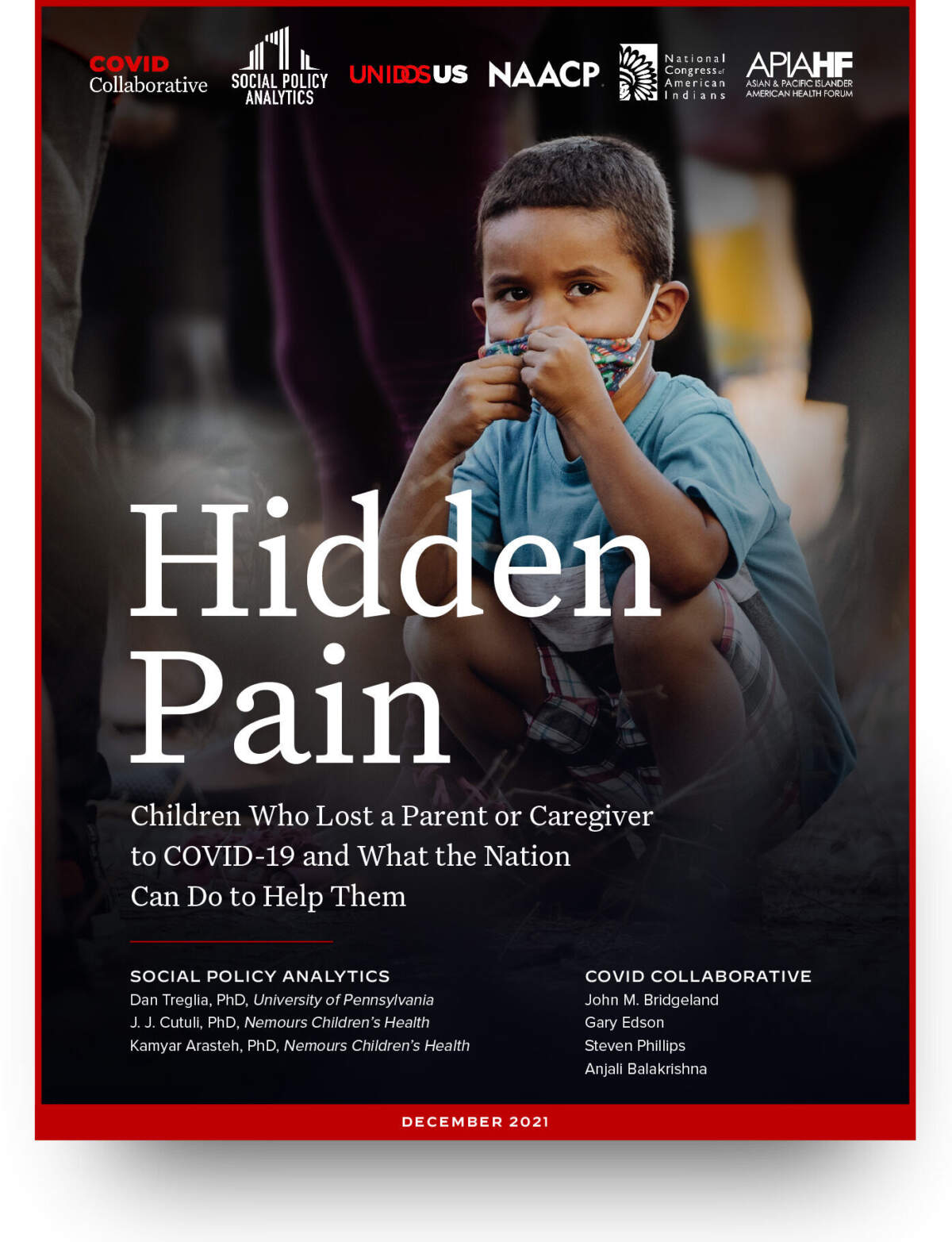
Summary
Among the more than 760,000 deaths from COVID-19 in the Usa are parents, custodial grandparents, or other caregivers on whom children had relied for financial, emotional, and developmental support. Many of these children already faced meaning social and economical adversity, and these devastating losses can bear upon their development and success for the residue of their lives. In a report written with the COVID Collaborative, we estimate the number of children who lost a parent or other caregiver to COVID-xix and provide concrete recommendations for urgent actions to protect these vulnerable children and their remaining caregivers.
Key Findings
Information updated equally of two/28/22
Estimating COVID-19 Related Loss on Children
The magnitude of the total loss of life from COVID-19 outpaces deaths in every U.South. state of war, and the impact of that loss on children in less than two years is profound. The numbers present a challenge to the nation.
- Total Loss: 203,649 children under eighteen—more than one out of every 360—lost a parent or other in-home caregiver to COVID-xix.
- Loss of A Parent, A Grandparent Caregiver, or Their Only Caregiver: More than than 91,000 children lost a parent to COVID-19 and over 79,000 lost a grandparent caregiver in the habitation, while more than than xv,000 children lost their simply in-dwelling caregiver.
- Loss by Age: Lxx per centum of caregiver loss (143,460) affected those aged 13 and younger. Fifty percent of caregiver loss (102,118) was amidst unproblematic and middle-school age children (5-thirteen years onetime) and twenty percent (41,342) was among those from birth through 4 years old. More than than 29 percent (sixty,189) of caregiver loss affected youth who were high schoolhouse age (14-17 years old).
- Loss past Race & Ethnicity: Non-White children lost caregiving adults at college rates than their White peers. American Indian and Alaska Native and Native Hawaiian and Pacific Islander children lost caregivers at rates about three.five times the charge per unit of White children; Black and Hispanic children at nearly 2 times the rate of White children; and Asian children at 1.4 times that of White children.
- Loss is Concentrated, but As well Found in Every Land in the Land: Five states—California, Florida, Georgia, New York, and Texas—accounted for half (50 percent) of total caregiver loss from COVID-19. Arizona, Mississippi, New Mexico, and Texas had the highest rates of caregiver loss, while Maine, New Hampshire, Vermont, and Iowa had the everyman rates.
- Loss past Geography, Race, and Ethnicity: The District of Columbia had the widest disparities in caregiver loss, where Black and Hispanic children's rates of caregiver loss were eleven and 17 times the rates of loss for White children, respectively. The rates of caregiver loss for American Indian and Alaska Native children were more than x times those of White children in Mississippi, New Mexico, North Dakota, South Dakota, and Utah.
Recommendations
- Undertake a coordinated strategy to comprehensively place children who have lost a parent or caretaking guardian to COVID-19 through schools, community-based organizations, primary care settings, and the use of municipal administrative records.
- Create a COVID-19 Bereaved Children's Fund, similar to those established for the families of September 11, 2001 and HIV/AIDS orphans.
School and Community-Based Interventions
- Aggrandize the grief-competence of schools, community-based organizations, faith-based institutions, and other community leaders.
- Expand admission to high-quality early on childhood programming for COVID-bereaved children, with categorical eligibility for publicly funded programming like Caput First and Early on Head Start and the waiving of parent-activity requirements and co-payments.
- Develop a registry of available grief services to inform referral efforts and make those widely available through communities, states, and national platforms.
- Strengthen social service systems providing critical resource to COVID-bereaved children and their families, which will have impacts beyond the immediate crisis.
Clinical Interventions
- Expand access to mental health care in schools through additional training plus partnerships with external mental health care providers.
- Expand admission to outpatient mental health care through increased co-location of services, integrated behavioral health care, and telehealth access.
- Reducing cost-sharing responsibilities or facilitating pro bono provision of outpatient mental health care associated with COVID-nineteen-based parental loss.
Economical Interventions
- Congress should make permanent the Kid Tax Credit as revised by the American Rescue Program, which volition benefit families experiencing loss.
- The White House and Congress should provide categorical eligibility for COVID-19 bereaved children for a range of ways-tested economic supports, including TANF, SNAP, Medicaid, and the recently amended Kid Tax Credit.
- State and local governments should provide pre-emptive outreach, example direction, and eligibility screenings for families with a COVID-nineteen decedent to facilitate enrollment in protective supports and services.
- The federal government should improve outreach and accessibility for FEMA'due south Funeral Reimbursement Assistance program, Social Security Death, and Survivor'southward Benefits.
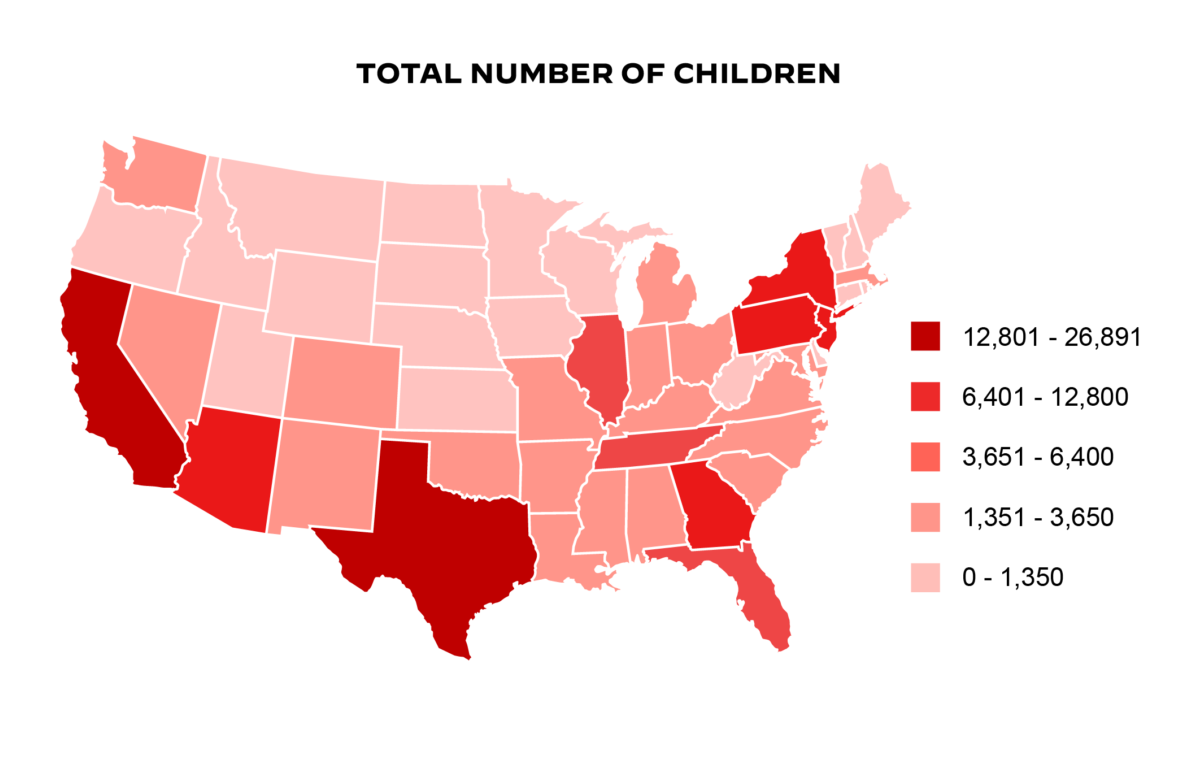
DECEMBER 9, 2021 | Press RELEASE
COVID Collaborative Report Shows More than Than 167,000 Children Lost Parents and Caregivers to COVID-19 and Includes Program of Activeness to Help Them
More than than 70% of children who lost parents and caregivers are 13 or younger; Communities of Color have been affected the most; Coalition calls for urgent public and private action to help COVID-bereaved children
Dec 9, 2021, Washington, D.C. The COVID-19 pandemic has been the single deadliest acute public health crisis in American history. More than 760,000 Americans have died in 22 curt months, many leaving behind children who have lost a caretaker, part model, and provider. Today, COVID Collaborative and Social Policy Analytics released a report estimating that 167,082 children – roughly one of every 450 – in the U.s.a. lost a parent or other caregiver in the dwelling house to COVID-nineteen, and offering a roadmap to support and provide for these children in their almost vulnerable moments.
Non-White children lost caregiving adults at college rates than their White peers, with American Indian and Alaska Native and Native Hawaiian and Pacific Islander children experiencing the highest rate of loss at near four times that of White children. Blackness and Hispanic children experienced more than twice the rate of loss of White children. Youth in every state experienced loss, but California, Florida, Georgia, New York, and Texas accounted for half of total caregiver loss from COVID-19. Seventy percentage of caregiver loss affected those 13 and younger. Half of COVID-bereaved children (83,798) were elementary and centre-schoolhouse age (5-13 years old) and xx pct (34,150) were from birth to iv years quondam.
"Every bit the nation looks to recover from the COVID-19 pandemic, at that place is an urgent need to accost the crisis of children left behind," said John Bridgeland, Co-Founder and CEO of COVID Collaborative. "For these children, their whole sky has fallen, and supporting them through this trauma must be a top priority. Today's written report is a rallying weep for the nation to help the children who accept lost parents and other caregivers to COVID-19."
"The children nearly probable to lose a caregiver to COVID-nineteen are also most likely to have faced previous adversities that hinder their ability to cope and show resilience," said Dan Treglia, co-writer of the report and Associate Professor of Practice at the University of Pennsylvania. "They are dealing with personal tragedies in the midst of national doubtfulness, stress, and turmoil, and leaders face a responsibility to support COVID-bereaved children and their remaining caregivers to maximize their chances of resilience and success."
Children and adolescents depend on their caregivers for financial, emotional, and developmental support, and the death of a parent or caregiver tin hinder a child's development and success for the rest of their lives. The impacts of losing one or both parents can include anxiety, depression, PTSD, substance abuse, suicide, poor academic outcomes, increased rates of loftier school dropout, economic turmoil, and general instability.
Policymakers, educators, nonprofits, and the individual sector tin accept steps to aid children and youth to address their grief and trauma. The written report outlines recommendations, including evidence-based policies, programs, and practices to address grief and trauma. The report recommends: concerted efforts within schools, wellness intendance, and faith-based communities to identify and connect children and families to supports; a COVID-Bereaved Children's Fund; expanding access to loftier-quality early childhood programming and social and emotional learning in schools; structured mentoring, peer support, and grief camps; expansion of mental wellness intendance; and executive action from the federal government to support these children now.
"The consequences of losing a parent tin can persist throughout a child's lifetime," said Governors Dirk Kempthorne and Deval Patrick, Co-Chairs of COVID Collaborative, in a articulation statement. "As a compassionate nation, America must provide the support these children need during this time of bully challenge."
The report, Hidden Hurting: Children Who Lost a Parent or Caregiver to COVID-19 and What the Nation Can Do to Assistance Them is available on COVIDCollaborative.us.
Statements of Support from Partners
Juliet K. Choi, President & CEO of the Asian & Pacific Islander American Health Forum
"COVID-19 has taken a gut-wrenching toll on our country, including the loss of so many parents and caregivers of children. This loss has disproportionately affected communities of color, including Native Hawaiian, Pacific Islander, and Asian American communities. We urge our nation to act, in unity, to ensure these children and their families take the back up they and then desperately need, now and in the years to come."
Dante Desiderio, Executive Director of the National Congress of American Indians
"The heartbreaking truth is that American Indian and Alaska Native children accept the highest rates of caregiver loss in the nation stemming from the COVID-xix pandemic. We need a comprehensive endeavour to support these children and their families every bit they work to navigate such difficult times."
Derrick Johnson, President & CEO of the NAACP
"COVID-19 has unduly affected communities of color. One of the well-nigh serious consequences has been the loss of a parent or other in-home caregiver for and then many children in these communities who often lack the resources and support to respond."
Janet Murguia, CEO of UnidosUS
"This alarming report shows that Black and Hispanic children are more than twice every bit likely to accept lost a parent or caregiver due to the pandemic. The consequences of these losses are devastating and can last for a lifetime. Information technology is critically of import for them and for our country's future to support a comprehensive response that volition help restore their social, economic, and emotional health and well-being equally quickly every bit possible."
Gary Edson, President of COVID Collaborative
"COVID-19 has unnecessarily divided the states at a time when this crisis should take united usa. Lending a helping hand to the children who accept lost parents, grandparents and other caregivers is a moral imperative that can knit our nation back together in a common enterprise."
Chi Kim, President & CEO of Pure Edge and lath fellow member of CASEL
"We accept spent years working to advance the social and emotional development of children. The COVID pandemic has devastated families and taken so many lives, including parents and caregivers, abroad from their children. We need to redouble our efforts in the nation's schools to teach and foster those very strategies to help heal the heart and develop tools to flourish."
Annette March-Grier, President & Co-Founder of Roberta's House
"We are working with children and families every day who have experienced trauma and loss, including children who lost a parent or other caregiver to COVID. Children and teens have been greatly impacted from so much loss and are at risk psychologically, physically and spiritually. America needs to come together to support this vulnerable population that represents so much potential for the futurity."
Heather Nesle, President of the New York Life Foundation
"Nosotros have worked for well over a decade to provide bereavement support to children and families. And nosotros know from our recent survey that parents say they need more support on this subject area, particularly from schools. Then we are strongly backside a public-private effort to expand proven strategies and services to assistance these children build a better time to come."
Karen Niemi, President & CEO of CASEL
"Nosotros are working across many states and school districts to help students acquire the very skills they volition demand to practice better in school, work and life. These skills are also invaluable in helping students cope with grief and trauma, including loss caused by the COVID-xix pandemic."
Francie Schnipke Richards, Vice President of Social Responsibility and The Allstate Foundation
"It'southward disquisitional that our nation prioritizes equitable access to evidenced-based social-emotional support for youth. Social and emotional learning can aid youth in many ways: from facing the trauma of losing a parent or caregiver, supporting mental wellness needs and resilience through pandemic recovery, to strengthening youth confidence, leadership and relationship skills for years to come."
David Shapiro, CEO of MENTOR
"MENTOR and the mentoring field are proud to join COVID Collaborative in placing healing and resilience at the heart of our nation's response to the trauma and loss faced past as well many young people as a result of the pandemic. Nothing volition replace a parent or caregiver, but we must practice all nosotros can to take on these complicated and long-term challenges including providing the personalized and proven response of positive and enduring mentoring relationships for young people left in the turbulent wake of loss. Nosotros will work diligently in a combined attempt toward the goals of coping, healing and thriving by fulfilling the promise of human connection at a time and in circumstances when our immature people need it virtually."
Timothy P,. Shriver, Chairman, Special Olympics and UNITE
"In the midst of unspeakable grief from the COVID-19 pandemic, those who have experienced painful losses are looking to all of us for strength, solidarity, and love. In these moments where so many children grieve, it is our great privilege every bit families, friends and citizens to support them in their sadness and strengthen them in their recovery."
Caryl M. Stern, Executive Director of Walton Family Foundation
"The past two years accept called upon so many Americans to summon courage, resilience and conclusion in the face of tragic loss from the pandemic. The loss of so many parents and other caregivers is devastating to hundreds of thousands of children and families. Nosotros know our nation will summon the will to human activity."
Grief Resources for Children
If you are supporting a child experiencing the loss of a parent or caregiver, the resource below have been recommended past the New York Life Foundation to aid.
Coalition to Support Grieving Students
The Coalition to Support Grieving Students is a unique collaboration of leading professional organizations representing the schoolhouse customs who have come together to support grieving students and their families. The Coalition has created and is sharing a set of industry-endorsed resources that will empower school communities across America in the ongoing support of their grieving students.
- For practical and attainable information for school communities to support children who experienced a death of a loved one, click here.
- Boosted resource can exist found on the National Center for School Crunch and Bereavement
National Alliance for Children's Grief
The National Alliance for Children'due south Grief (NACG) is a nonprofit organization that raises awareness about the needs of children and teens who are grieving a death and provides education and resources for anyone who supports them. Through the collective voice of our members and partners, we educate, advocate and raise awareness about childhood bereavement. The NACG is a nationwide network comprised of professionals, institutions, and volunteers who promote all-time practices, educational programming, and critical resources to facilitate the mental, emotional and concrete wellness of grieving children and their families.
- For resource to support bereaved youth and their families, click hither.
- To detect support locally, click here
Dougy Centre
Founded in 1982 in Portland, Oregon, the Dougy Center started the beginning peer grief support groups for children, and has become a earth-renowned model for bereavement support known as The Dougy Center Model.
- Extensive resource for people of all ages who are grieving before and after a decease equally well equally resources for professionals
- Detect local bereavement support centers by zip code
Eluna/Camp Erin
Camp Erin is the largest national bereavement program for youth grieving the decease of a meaning person in their lives.
Children and teens ages 6-17 nourish a transformational weekend campsite that combines traditional, fun army camp activities with grief education and emotional support, free of accuse for all families. Led by grief professionals and trained volunteers, Camp Erin provides a unique opportunity for youth to increase levels of hope, raise self-esteem, and especially to larn that they are non alone.
- Discover a local Army camp Erin
- Eluna'due south Resource Center
New York Life Foundation: A Child in Grief Bereavement Online Resource
Helping families in times of grief is at the heart of New York Life'southward Foundation'southward mission, and our enquiry has shown that families who lose a loved 1 wish they had more resource and support available to them. In an effort to address this gap, they take a dedicated online grief resource which offers articles, expert tips, personal stories and local resources for families, educators and customs members.
- Resources for school communities, families and all communities
- To order free resources including the following
- After a Loved I Dies: How Children Grieve and How Parents and Other Adults Can Support Them: English e-booklet or Castilian eastward-booklet
- Kai's Journeying is a moving picture and book series that is defended to children and families who have experienced the decease of a loved one. The serial strives to provide guidance and support as they embark on this lifelong journeying of learning to better sympathize, process, and communicate their grief.
Resources
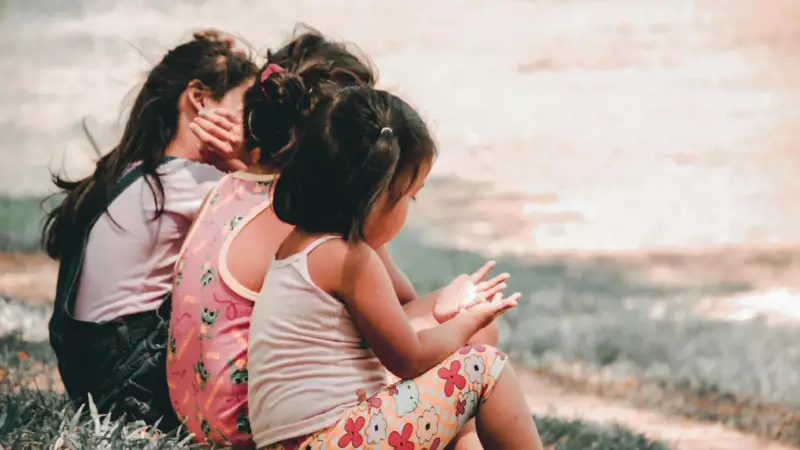
Schools and Youth
Hidden Hurting: The Platform
Mar 07, 2022
COVID Collaborative has built a platform to honor the stories of children that have lost a caregiver to COVID-xix, and provide resource to aid them and their families as they rebuild and await to the future.
Partners:
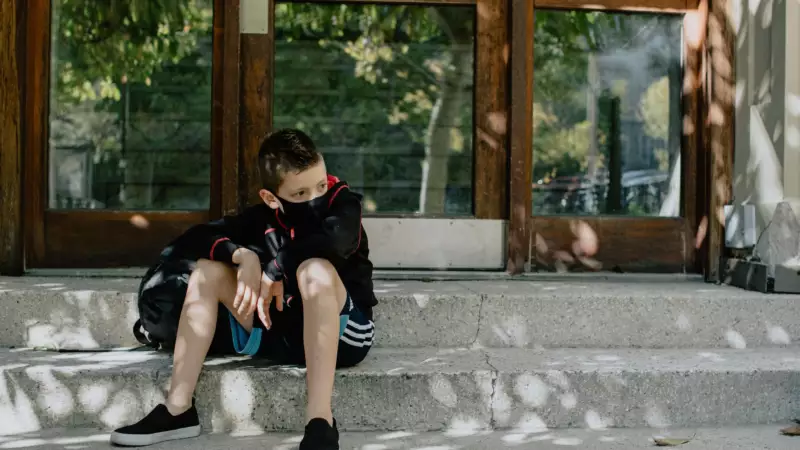
Schools and Youth
Letter to President Biden Urging Action to Support COVID-Bereaved Children
Jan 26, 2022
In this alphabetic character issued by COVID Collaborative, over lxxx experts in public wellness, civil service, education, youth mental health, and more urge President Biden to take activity to support the nearly 200,000 children who take lost a parent or in-abode caretaker to COVID-19.
Partners:
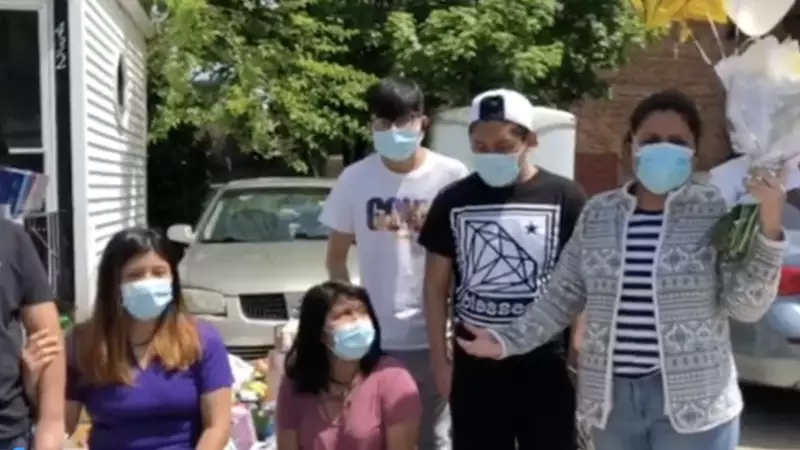
Schools and Youth
Stance: COVID-bereaved children need our support
Jan 04, 2022
John Bridgeland describes the hidden pain of children who take lost caregivers to COVID and highlights a path forward to supporting these 167,000 children.
Partners:
Printing

Helping children grieve the loss of a caregiver due to COVID-19
The COVID-nineteen pandemic has been full of difficult situations for children, from instruction disruptions to lack of socialization at important developmental stages. It's too left many children without parents or caregivers. What tin can clinicians practise to assist these children?
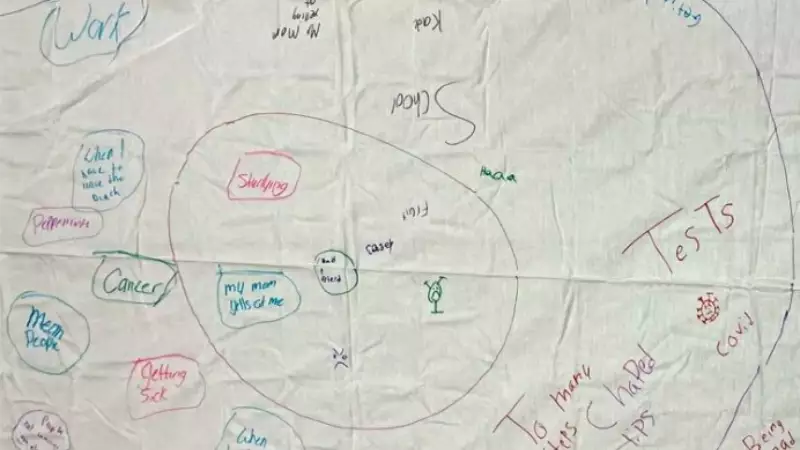

Healing Patch supports families impacted past COVID-19 deaths
During the last two years, at that place take been many statistics about how our world, nation, state and communities have been impacted by COVID-19. A startling number to consider is the more 167,000 children – roughly one in 450 of all children in the United States – who have lost at least i of their caregivers to COVID-19, according to COVID Collaborative. The Healing Patch Children's Grief Programme has experienced an increasing number of calls from caregivers reaching out for support.
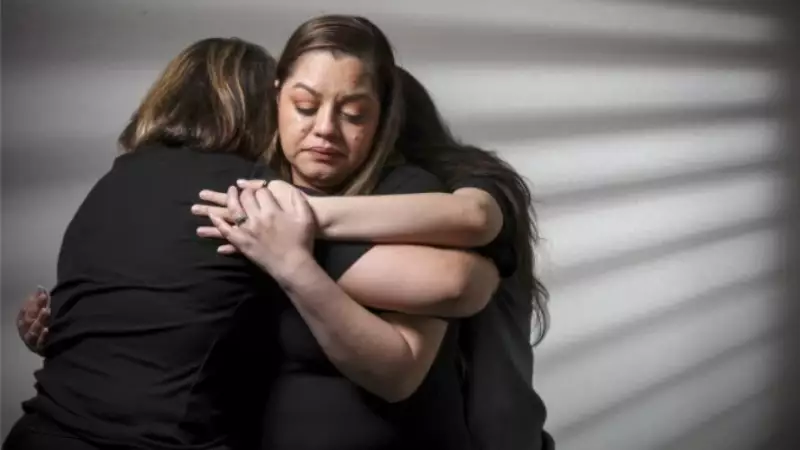

A male parent'south death, a son's despair: How COVID upended a family
The Reyes family unit from California opens up about their experiences with grief and loss during the COVID-nineteen pandemic. About 167,000 children nether 18 have lost a parent or other in-home caregiver to COVID-19, according to a December study past researchers from the COVID Collaborative and Social Policy Analytics. Black and Latino children experienced more than than twice the rate of loss of white children.
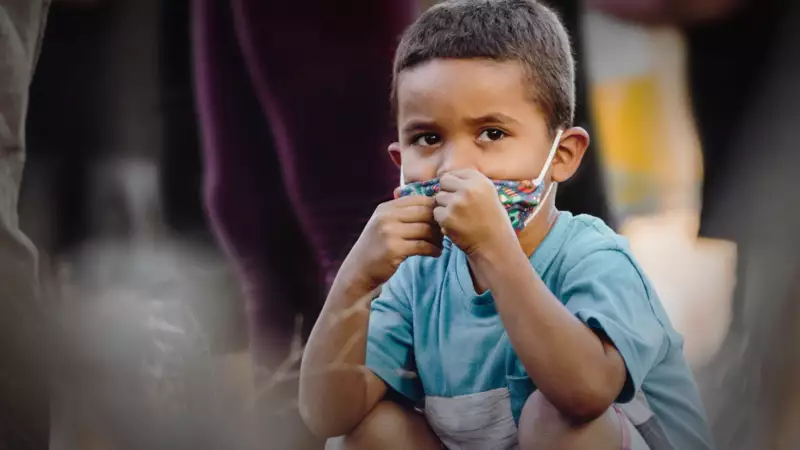

A call to action to assistance America'southward children who lost caregivers
America's COVID-19 crisis has not ended, but we have begun to count the staggering size of the nation's loss. Some of the cruelest hurting has come to a group with the least capacity to understand and cope with it — children who take lost a parent or other in-home caregiver to the virus. The bear upon on these children, their families, and their communities will be that much more profound if Americans exercise not rally to back up them.
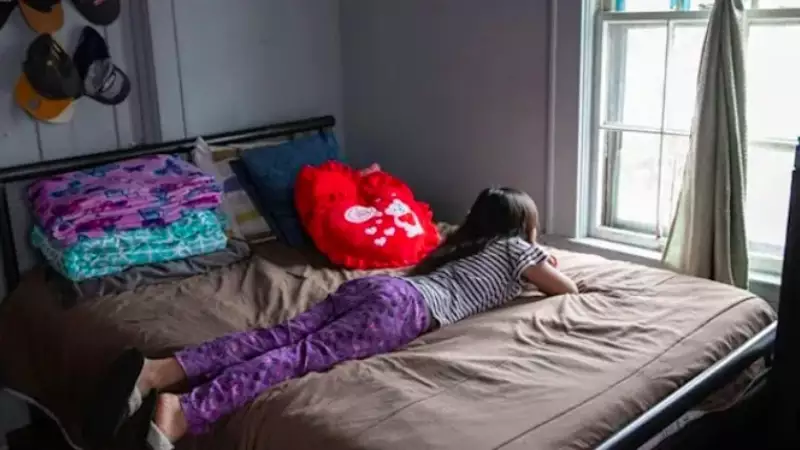

National Trauma: 1 in 450 Youth Have Lost a Parent or Caregiver to COVID
Young Brooklynite, Melanie Keaton, is one of more than 167,000 children who are believed to have lost parents or caregivers to COVID during the pandemic — roughly one in every 450 young people in the U.Southward. under age eighteen.
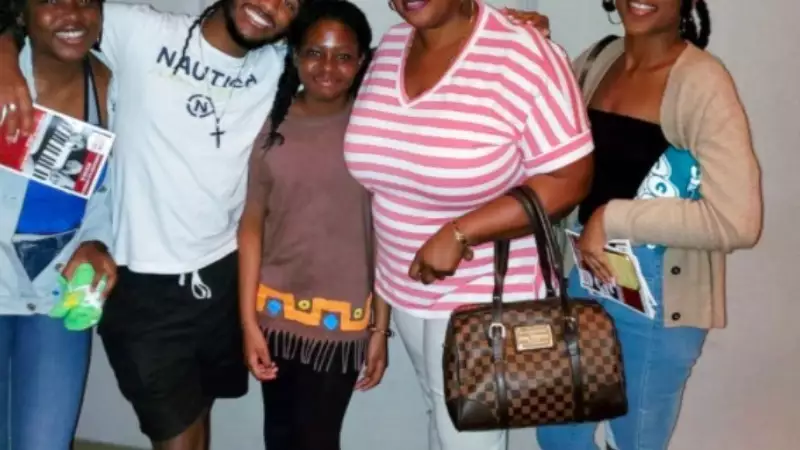

Kids who lost parents to COVID-nineteen draw 'emptiness' they feel this holiday season
When Cindy Dawkins, a eating house employee in Florida, died of COVID-19 in Baronial, the unmarried mom left behind four children. Now her kids, Jenny, 24, Tre, 20, Zoey, xv, and Sierra, 12, are among the estimated tens of thousands of children marking the holiday flavour later on suffering the loss of a parent or caregiver due to COVID-19.

Hidden Hurting: 167,000 Have Lost Parents or Caregivers to COVID-19. What Are Nosotros Going To Practise Nigh It?
More than 167,000 children – roughly ane out of every 450 in the U.Due south. — take lost a parent or other primary caregiver to COVID-19, according to a new, bipartisan written report released last calendar week past COVID Collaborative and Social Policy Analytics. The report, Hidden Pain: Children Who Lost a Parent or Caregiver to COVID-nineteen and What the Nation Can Exercise to Help Them, offers a roadmap to support and provide for these children, roughly half of whom are in elementary or inferior loftier school.
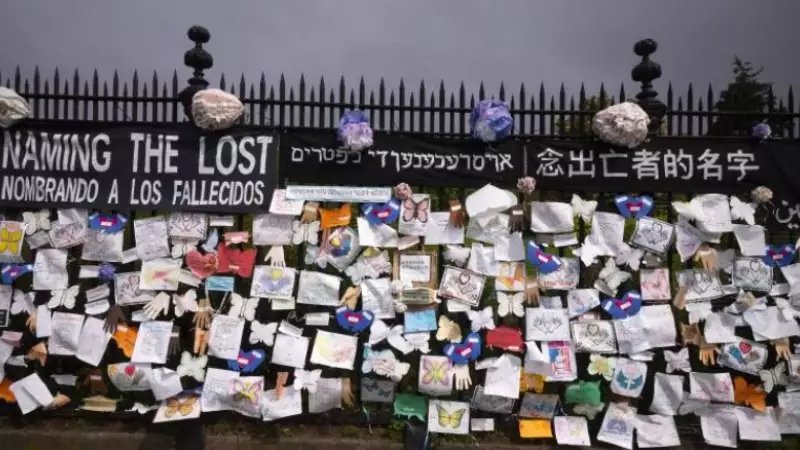

Former Gov. Deval Patrick calls on Biden to support kids who lost parents to COVID-19
A new report released last week by the COVID Collaborative, a national advisory group on the pandemic co-chaired by one-time Massachusetts Gov. Deval Patrick, constitute that more than 167,000 children in the United States have lost a parent or caregiver to COVID-19. That's i out of every 450 kids. The report says that includes more than than 2,000 kids in Massachusetts.
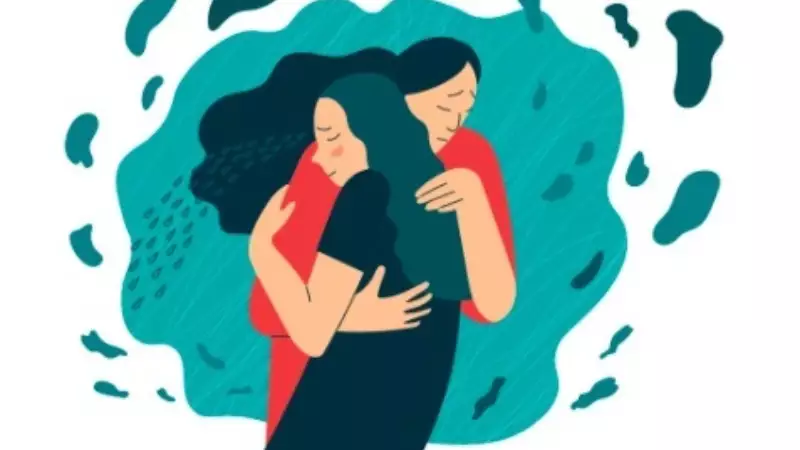

Forgotten Grievers
"The truth is children are our nigh valuable resources. They have the power to set up what nosotros take left cleaved, to mend what we have torn, to reap what nosotros failed to sow. I promise we tin can channel the collective grief around COVID to address the firsthand crises facing our youth. But I hope we can human action even more than broadly, creatively, and ambitiously."
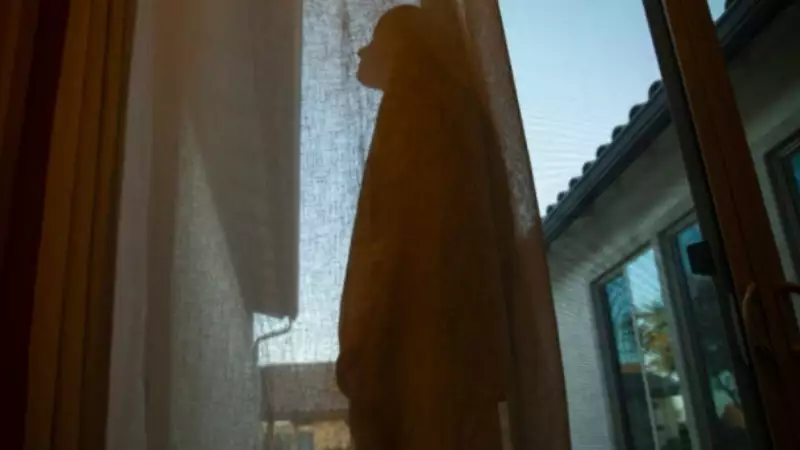

Children coping with loss of caregivers are Covid-19 pandemic's 'forgotten grievers'
Ms Courtney Grund, whose husband died of Covid-19 in Baronial, got an alarming text message last week: Her 16-yr-sometime son was "talking about cocky-harm", according to the message, sent by his friend. She quickly signed him upward for grief counselling, she said in a tearful interview, using her maiden name to protect his privacy.
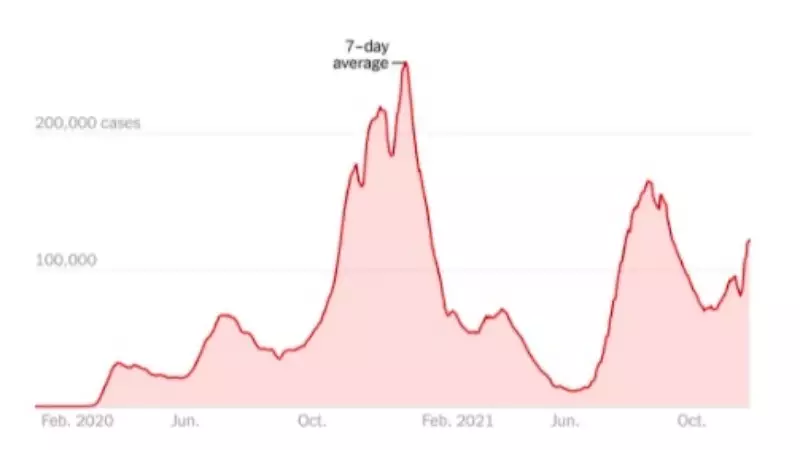

Coronavirus Briefing: Boosting older teens
The Covid Collaborative is request President Biden to initiate a national campaign to identify these children and have steps to improve their emotional and economic well-beingness. In a report released today, the group recommended offer them mental health care and creating a "Covid-19 Bereaved Children's Fund," like to a fund established after the Sept. 11 attacks, to provide up to $ten,000 to families in need.
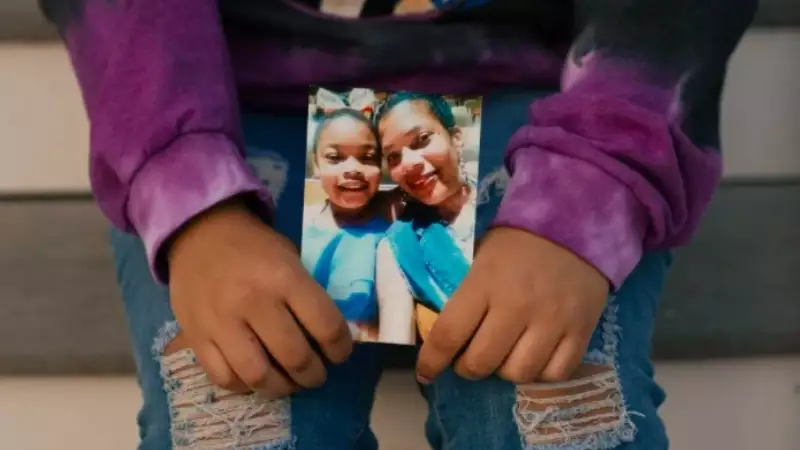

Biden is urged to help an estimated 167,000 U.S. children who take lost parents or caregivers.
The COVID Collaborative is request President Biden to initiate a national entrada to place these children and, with help from the individual sector, take steps to improve their emotional and economic well-beingness. Its recommendations include offering them mental health intendance and creating a "Covid Bereaved Children'southward Fund," similar to a fund established after the Sept. xi attacks, to provide upwards to $x,000 to families in need.


Children, Coping With Loss, Are Pandemic'due south 'Forgotten Grievers'
The COVID Collaborative recently released the Subconscious Pain written report which revealed the struggles of the 167,000 children 18 and below who accept lost a parent or caregiver. Many people take shared their experiences and emphasized the need to support these children.
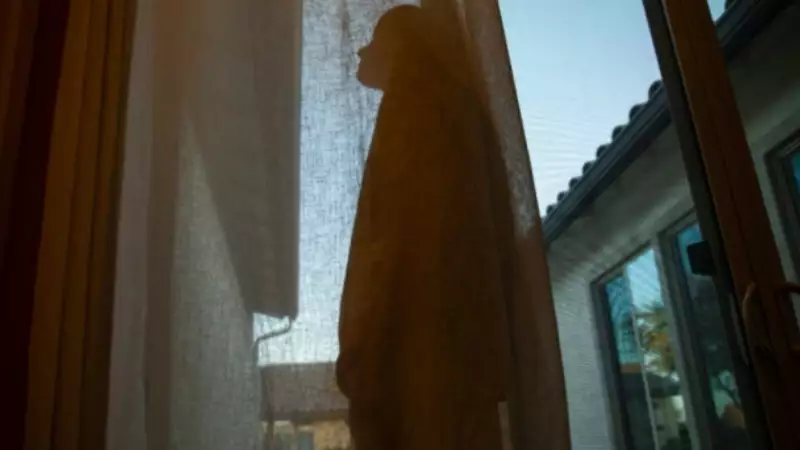

Kids, Coping With Loss, Are Pandemic'south 'Forgotten Grievers'
Many experts and concerned parents and citizens have come together to express concern for the 167,000 children who have lost parents or caregivers to COVID-19, including a spokesperson for the Partition of Well-being and Human Providers, Kirsten Allen.
Related Initiatives
Education Executive Briefs
Sep 01, 2021
As students return to a third year of disrupted learning, the COVID Collaborative and CRPE, the Walton Family Foundation, and the Allstate Foundation are working together to accost unfinished learning and restoring student well-being.
View Initiative
Source: https://www.covidcollaborative.us/initiatives/hidden-pain
0 Response to "Help for Families Who Recently Lost Their Home"
Post a Comment